THE BRAVELY BALANCED BLOG
For the overachiever and the overworked!
How exhausted are you? I know the feeling!
Does being exhausted serve you? What if I told you that you could have it all without subjecting yourself to hustle culture?
Sounds divine, doesn’t it? Follow along and feel the ease!
Category
- Analysis Paralysis
- Anger and Depression
- Anxiety Stress & Fear
- Balance
- Burning the candle
- Burnout
- Change
- Dealing with Urgency
- Doubt
- Drive
- Emotional awareness
- Empowerment and Living
- Epigenetics
- Expectation
- Faith
- Healing
- Hope
- Introversion
- Leadership
- Personal Boundaries
- Personal Strengths
- Resilience
- Self-reliance
- Shame
- Trauma
- Victim Mentality
- Vulnerability
- Worry
- avoiding conflict
- balance
- being alone
- conflict resolution
- connection
- decluttering
- duty and guilt
- emotional eating
- empathy
- energy
- feeling stuck
- happiness
- imposter syndrome
- intentions
- justice
- mindfulness
- overeating
- perfection
- perfectionism
- procrastination
- regret
- resolotions

Breath as a Lifeline: Navigating Anxiety and Overwhelm
Sometimes my job feels like a gift: every time I manage to really help a person, I feel great. And, every time I manage to help someone, I also help myself, and learn how to help others as well.
In case you haven’t noticed, anxiety is all around us these days. So is panic. For some, because of past pain, every challenge that comes their way feels so threatening that they go into a panic, even if they know they can handle that challenge.

Mirroring – I see you, I see me
I watched 2 friends in conflict: They were missing each other’s message. One of them eventually said to the other “I feel you don’t trust me!” The other felt hurt by that comment and said so, because it was as if their friend was laying the cause of the disagreement at their feet without owning any part of it.

You are good enough!
There’s a commercial online that lifts my spirits every time I view it. The speaker is Tunde Oyeneyin and it’s titled Yes. I. Can. ”… those words in your head? You’re the only one that can hear them. … Say it! Yes. I. Can. Move! ... Yes. I. can. Yes I must! Watch me!”You are good enough.

The Choice Between Collaboration and Teamwork: A Personal Perspective
These days, it’s popular to talk about being part of a team – being a team player is desired, being a loner is not desired.
Sometimes, working in a team seems good – every viewpoint is considered, every desire included, and the end result is – hopefully – something that everyone on the team wants and can stand behind.
The truth is not that clear-cut: often what happens when everyone on a team has an equal say is that either some form of compromise is reached where nobody gets what they want entirely (that’s the best possibility); or factions form and argue for their viewpoint, eventually wearing down any team member who disagrees. It’s rare that the result is what everyone wants, and frequent that the result was obtained through peer pressure.

Practice makes expertise
Practice makes perfect is a quote from Benjamin Franklin that is now a cliché. When I try a new recipe, I follow the instructions with care, and it often turns out well. The second time, I only look at the recipe if I feel lost, and it often does not turn out well. The third time, it becomes something completely different, and sometimes it turns out well. After that, if I continue with it, I develop my own version of that initial recipe that tastes good all the time.In every instance, I eat what I make. (If you’re ever eating at my place, it may be a good idea to find out what repetition I’m on).

The Pusher's Dilemma: How to Channel Stress Productively
At my worst, I’m a pusher – a ‘pusher’ in the sense of what I do to myself (and others) physically, mentally, and emotionally when I am stressed. I know this and have worked at reducing this urge for a number of years. The fact is, though, that when I’m worried and anxious about something, I push. I insist. I shoot forward. I press on. I make sure something urgent gets done no matter what! Now, while this tendency may be perfect in a real emergency, all it does is cause me and others problems otherwise.

The Science of Healing: Placebos and the Mind-Body Connection
A placebo is defined as a harmless substance or procedure meant to benefit emotionally more than physically, although due to its positive psychological impact, this in turn positively impacts us physically. Placebos are now developed and used for their powerful emotional impact – the world of science and commerce has begun to take note, and to find ways – for better and worse – to make use of them: Shopping for something beautiful when you’re recovering from a difficult surgery. Having friends over for dinner when you’ve been through a stressful week.

Where it all begins
I woke at around 2am: wide awake and feeling ‘perfectly fine’. I just couldn’t get back to sleep. This isn’t very common for me anymore, but it still happens. When I wake like that, it’s because something is worrying me and it isn’t something in my awareness. I’ve learned to suppress my anxiety very well so that it often only rises up like that in the middle of the night.

Personal Priorities - recognizing your need for change
I received a note from a colleague this week, saying she was taking time off in order to be with her family. I honored that, and her clarity on knowing what comes first.
I myself, and many of my clients, often forget to do this. We end up noticing only when we’re exhausted or our body breaks down. You’d think we’d learn, but we don’t.

Seeking Truth, Compassion, and Usefulness
I was reminded what Ursula K Le Guin – a hero of mine – had on her desk when Seth Godin referred to it in one of his daily blogs: Is it true? Is it necessary or at least useful? Is it compassionate or at least unharmful? Her novels were labelled science fiction. They were captivating to me and many others. And they contained lessons on how to live with yourself and others no matter when or where you landed, including here on Earth, today. We need that, especially today.

Our sacred responsibility to ourselves
I’ve had a life-long problem with self-care. Self-care is the first thing I drop when I’m busy and have things ‘more interesting’ to deal with.
I am aware I’m not alone in this lack of self-regard. It seems at least partly cultural. It’s definitely something my community views as admirable in some ways – the image of the self-sacrificing person caring for their world around them at a cost to themselves.
There are any number of ways I can ignore self-care. Most of the time it’s daily: yes, I brush my teeth and these days make sure I get enough sleep; I also have a daily meditation routine that I’ve - at long last – made a habit. I try to eat well, etc., etc.. But what I drop very quickly are daily stretches and exercises, light eating at specified times with family – anything I either don’t like that much, or for things I like more. With the convenient excuse that I don’t have time for sitting down to a meal, or getting outside for half an hour.

Grape vines
Almost everyone I know who isn’t retiring wants to start their own business. That generally means building an online presence, and that usually means getting professional help. This professional help might include coaches, trainers, required courses or certifications, virtual assistants, social media experts, website builders, technical support, and/or accounting. None of these supports are absolutely needed, but most could really help … if you can afford it, and if you luck out choosing the right people. Pretty much all of them come with a hefty price tag, and for a starting business, that’s difficult. I personally know how difficult it can be: my business is my own; I am largely online and need support for that.

The Art of Honest Expression: Making Your Truth Matters to Others
I come up with blog ideas usually months in advance – I hear, read, or experience something that interests me and feel it might also interest my audience, setting up the title and overall subject-matter. Then the week prior, I write it.
That’s the truth. It’s also the truth that what I write about happens to us all. So, if you read something in my blog and feel it might be about you, it both is and isn’t: it is, because you have probably experienced something like it and I may have seen you recently; it isn’t, because I really did plan this a long while ago.

The Simplicity Solution: Tackling Overwhelm and Embracing Change with Confidence
I listened with fascination last week to a friend who was faced with some unexpected issues that prevented her from doing what she’d planned. I watched her complicate matters to the point that she felt overwhelmed and unable to even begin anything at all. It got me wondering about how often I’ve done that myself, especially if I was already feeling a little pressured. And especially if it went counter to what I’d planned. It's always been my fondest fantasy that I embrace change. But if that’s so, then why does anything that disrupts my plans put me off so much? In this, I suspect I may be like many of you: that I like some change, that I like the idea of embracing change, but that I also want to accomplish what I’ve set out to do, and if some extra thing threatens that possibility, I begin to get overwhelmed.

Bold Beginnings: How to Approach and Triumph over What's Holding You Back
I remember a TV show I saw years ago where a young-ish medical student was considering giving up. She was pregnant and alone and just suffered a pregnancy-related stroke. I mean, under those circumstances, few would blame her for stepping away. Her mother listened to her pain, and talked about her own similar decision years earlier – whether to remain where she was as a nurse, or go back to school to be a doctor. The mother said she decided not to pursue a career change because she was too old; now she was in her 50’s and still wondering.

From Hurt to Healing: Exploring Paths Beyond the Urge for Revenge
I get it – the need to take revenge on someone who you feel hurt you, helping you feel at least a little bit empowered and less helpless. Feels so sweet when you do it. But not for long .In tragic tales and classic novels, often a good person is wronged and takes revenge. Later on, they discover that the person they took their revenge on wasn’t as deserving as they felt. They end up feeling remorse, and are unable to move on. The tale ends in tragedy – of the person they hurt and of themselves. Tales like Oedipus come to mind: king of Thebes, who unwittingly killed his father and married his mother. In this story, it was his mother who could not live with it when she discovered her son’s true identity, and ended her life.

Breaking Patterns: The Liberation in Opting for a Different Choice
I hear so often about the increase in anxiety that everyone is feeling, and especially young people. This generalized anxiety can result in not feeling safe. That can end up increasing our sensitivity to perceived slights, which in turn, generates conflict, division, and hard feelings.

The art of unlearning
When I was a teenager, a group of us would crowd around the dinner table of the Dutch mother of one of our friends for their traditional Friday evening meal. I remember that meal as being so much fun – choice prepared meats and cheeses, ripe sliced tomatoes and a selection of hardy breads. It’s a memory I cherish, filled with delicious food and a lot of laughter.

Good times, bad times
When I was a teenager, a group of us would crowd around the dinner table of the Dutch mother of one of our friends for their traditional Friday evening meal. I remember that meal as being so much fun – choice prepared meats and cheeses, ripe sliced tomatoes and a selection of hardy breads. It’s a memory I cherish, filled with delicious food and a lot of laughter.

Taking the risk out of conflict
Most of us hate conflict and try to avoid it, some at all costs. There’s a problem with trying to avoid conflict: it will show up again, either with the same person or a different one; either in the same or a different scenario. If you have a beating heart, conflict is a part of living. I’m guessing that if you try to avoid conflict, it’s probably because it makes you feel anxious. The reasons vary, but for most of us, it’s about the expected results of conflict – being rejected, shamed, excluded, embarrassed, judged, treated unjustly, … - any number of negative expectations that none of us relish facing. If that’s what you fear, then it makes conflict risky. But it doesn’t have to be that way.


